7 Fragrant Hedge Plants For Heavenly Floral Boundaries
A fragrant hedge will boost your home's curb appeal, providing a feast for the senses with glorious flowers and a delicious aroma.
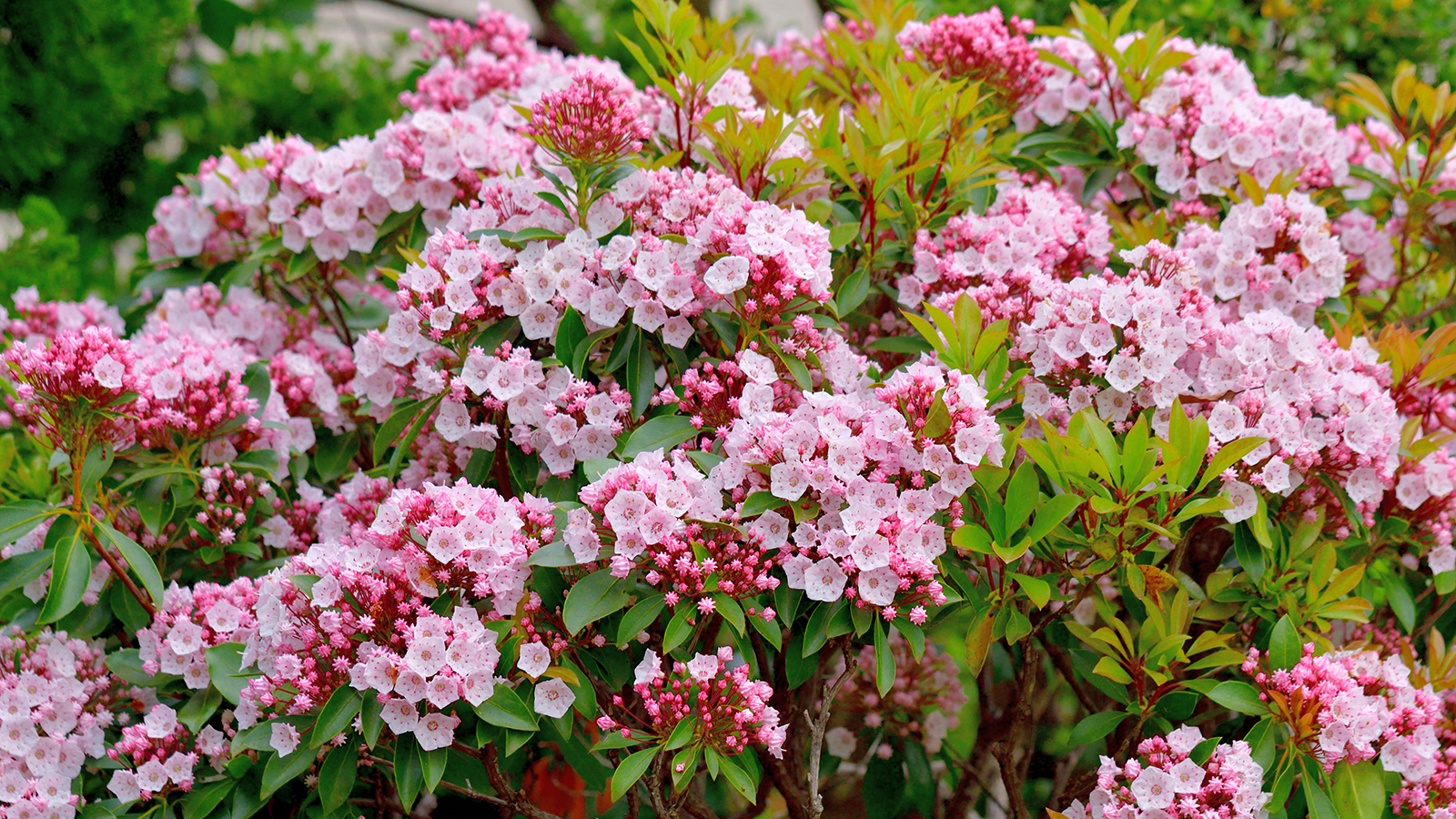

Amy Draiss
Planting a hedge is a great idea for many reasons. A hedge is a living, natural barrier. It is a green and attractive alternative to a fence or wall. Hedges provide privacy while adding to the beauty of your garden and supporting wildlife.
Depending on the types of hedging plants you choose, a hedge can add another element to your garden: a delicious fragrance. When selecting plants for your hedge, consider the appearance and smell, but don’t forget practical factors.
For instance, a deciduous plant will not provide privacy in winter, while an evergreen plant creates a year-round barrier. You might want to choose fragrant hedge plants native to your region, or a mixed privacy hedge to support wildlife. Fast-growing hedges will establish boundaries more quickly.
Consider your USDA hardiness zone and growing conditions, how large the hedge will get, and maintenance requirements.
Here are some options for fragrant shrubs that make good hedges and provide an inviting aroma.
1. Lilac
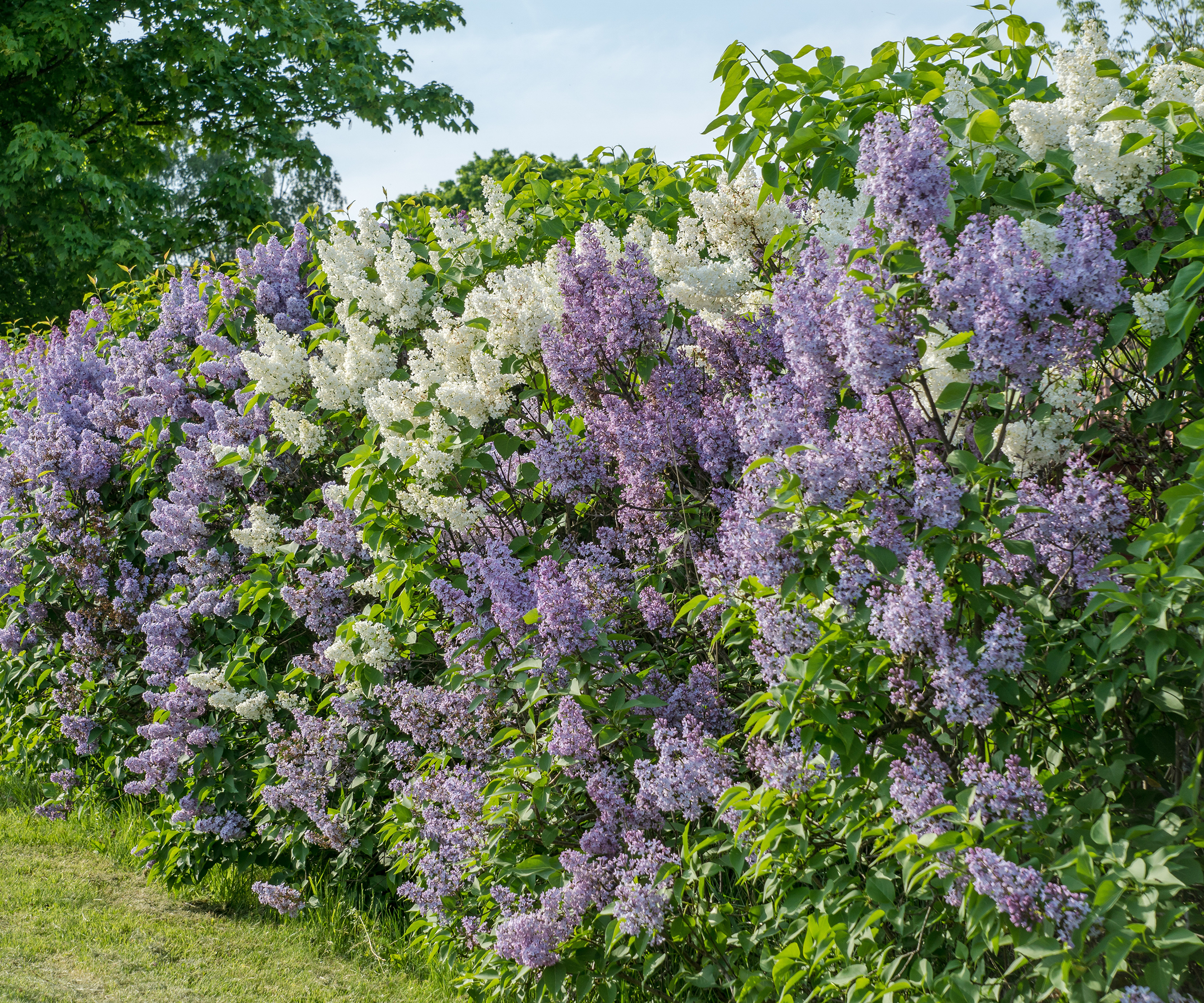
Lilac (Syringa vulgaris) produces large clusters of multiple, small, sweet-smelling blooms. These are typically in shades of purple or pink, but you can also find white varieties.
As these shrubs grow densely, they can be trimmed into a neat lilac hedge or allowed to grow more naturally. You can even bring the aroma indoors by using the hedges for cut flowers.
Sign up for the Gardening Know How newsletter today and receive a free copy of our e-book "How to Grow Delicious Tomatoes".
Suitable lilac varieties for hedges include Persian lilac (S. persica), Chinese lilac (S. chinensis), and Dwarf Korean lilac (S. palebinina).
Lilac needs a cold winter to bloom reliably, and the shrubs are hardy in USDA zones 3 to 7. Plants prefer full or partial sun and well-drained soil with medium moisture levels.
Prune lilac hedges after they bloom in spring.
2. Mock Orange
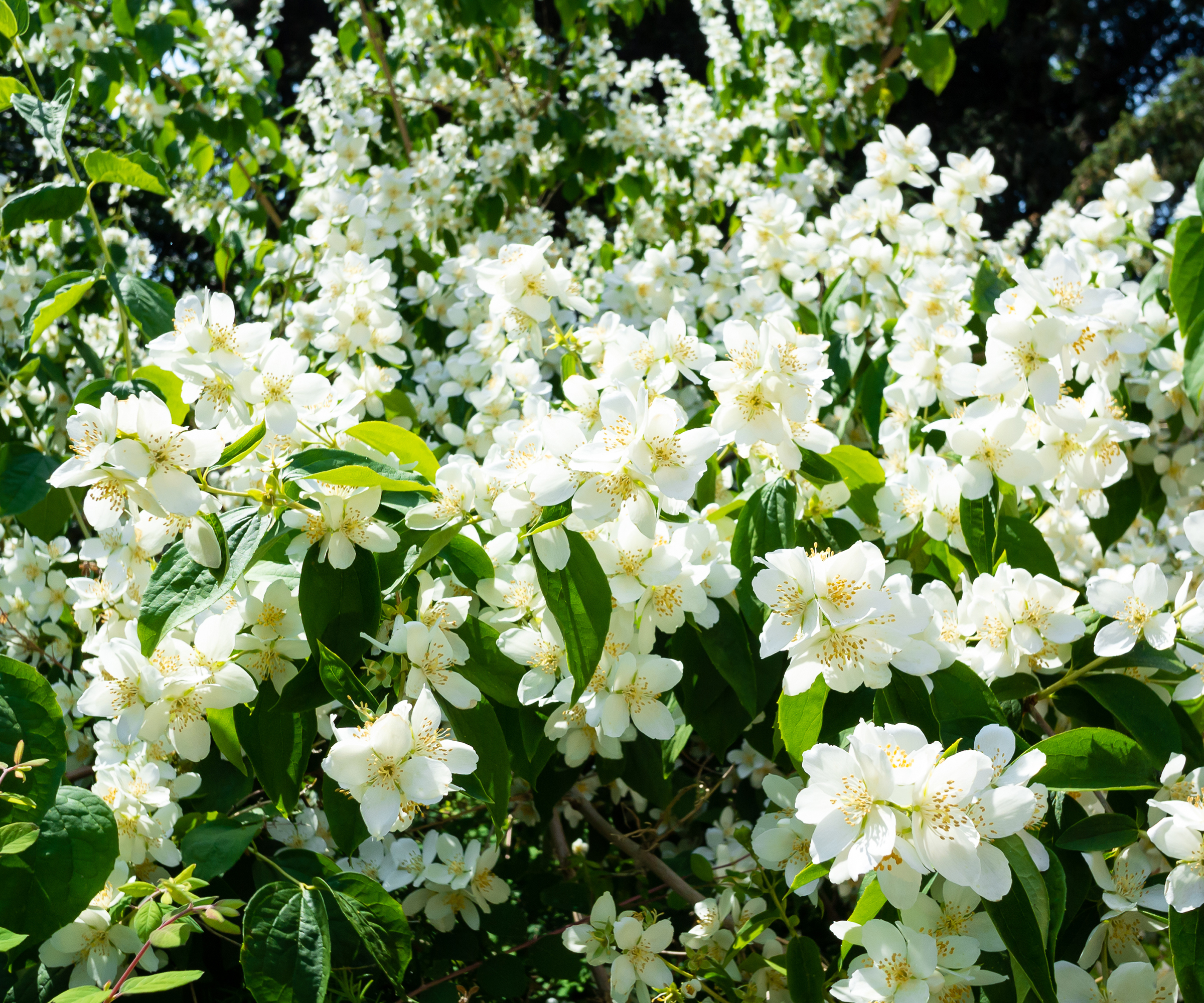
Mock orange (Philadelphus spp.) is a deciduous shrub that produces flowers that smell like orange blossoms. The delicate white flowers bloom in spring and early summer and attract pollinators.
There are several species and varieties suitable for growing a mock orange hedge. Most reach about eight feet (2.4m) tall, but there are smaller varieties as well.
Grow mock orange hedging in full sun or partial shade and soil that drains well. Plants tolerate poor soil but not soggy roots.
Hardiness varies by species, but generally, mock orange grows well in zones 5 through 9.
Prune mock orange to maintain a hedge shape after flowering.
3. Summersweet
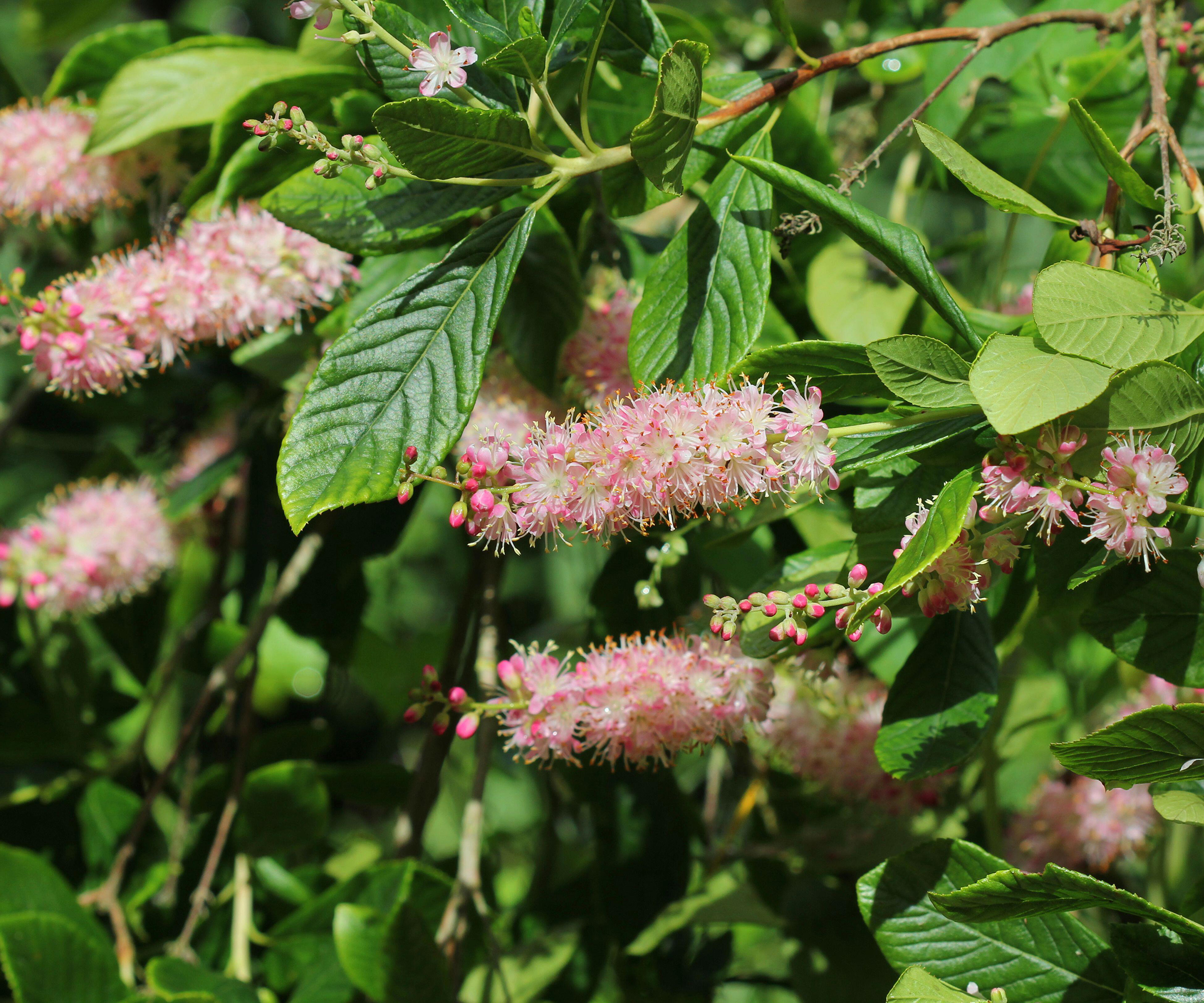
Also known as sweet pepperbush, summersweet (Clethra alnifolia) is a flowering shrub that can be trimmed into a hedge.
It grows between three and eight feet (0.9 to 2.4m) tall and nearly as wide, but you can prune it into a narrower shape.
Unlike many flowering shrubs, summersweet does not bloom in spring. It provides sweetly scented blooms in July and August.
Grow a summersweet hedge in zones 3 through 9 in sun or partial shade. It will even tolerate full shade and still bloom.
Native to marshy areas, summersweet is a good option for wet areas where the soil stays consistently moist.
4. Fragrant Viburnum
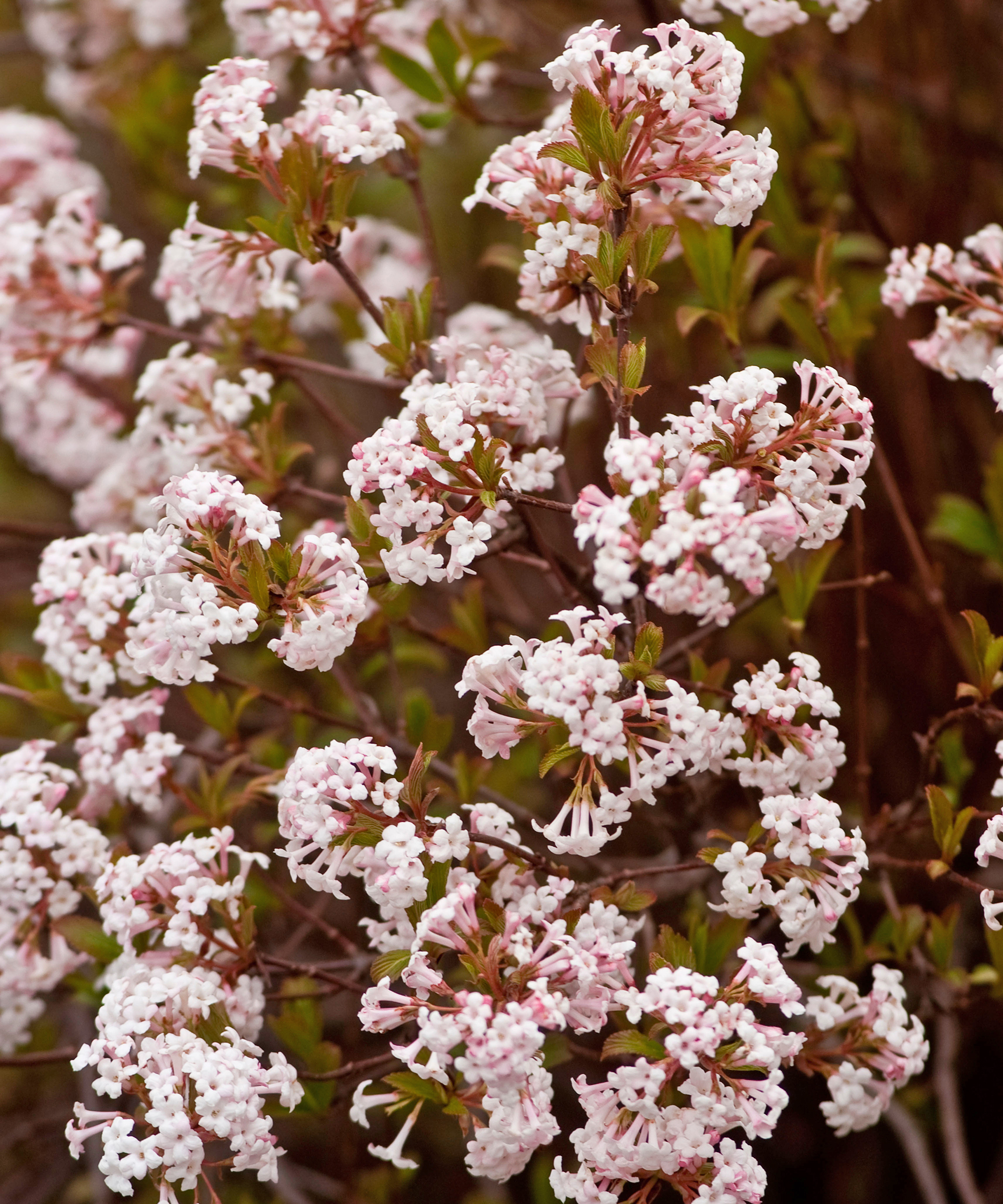
You can find many types of viburnum suitable for a viburnum hedge. Fragrant viburnum (Viburnum farreri) produces showy pink-white flowers with a sweet, perfume-like aroma in spring.
The shrubs are narrow and upright. They are naturally shaped for hedging and do not require much pruning or shaping.
Growing viburnum is most successful in moist, well-drained, acidic soil. Use mulch to hold moisture in the soil. Viburnum shrubs are hardy in zones 5 through 8. They thrive in a spot with some protection from winter winds.
Viburnum pruning should be done right after the shrubs flower.
5. Fragrant Olive
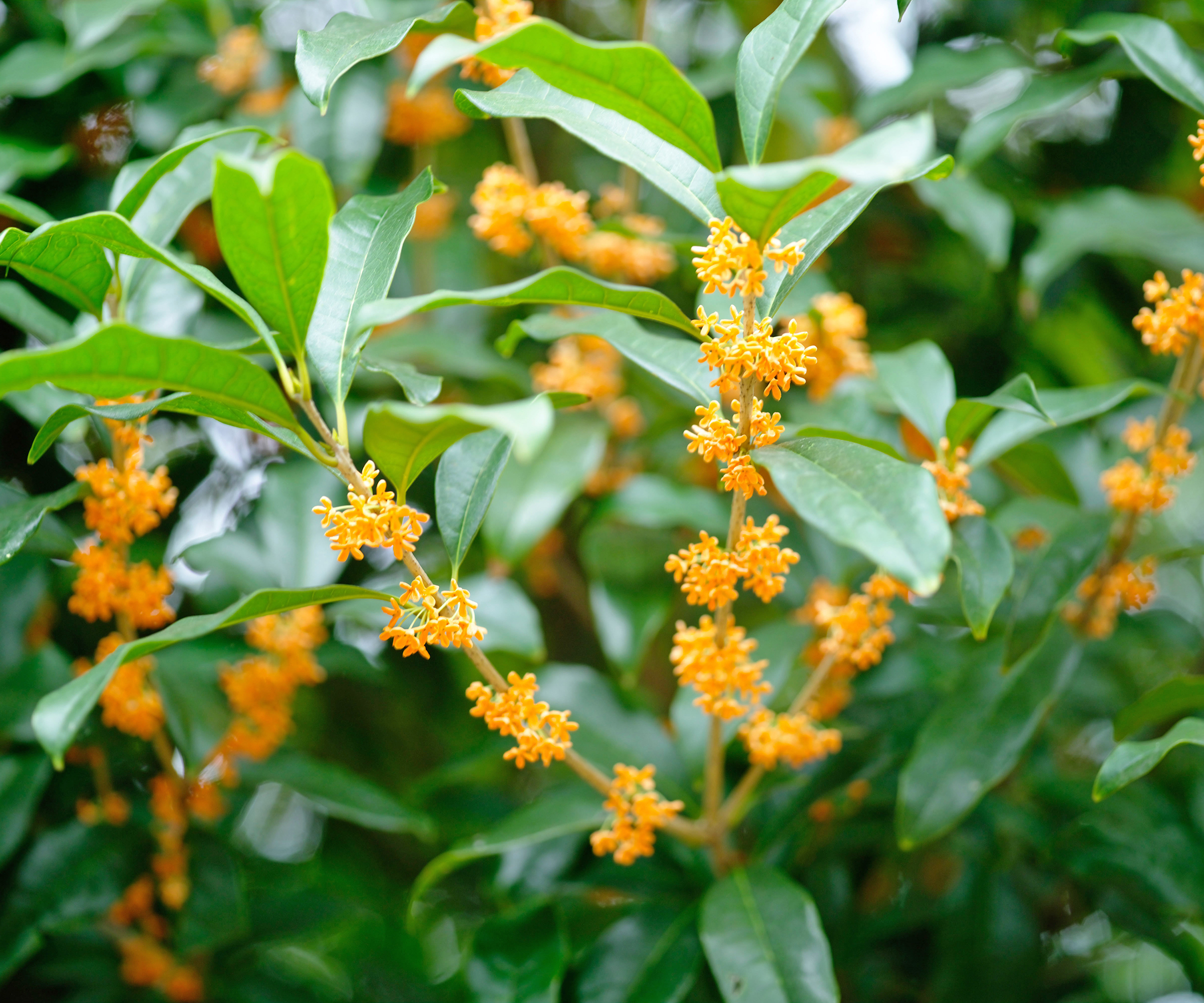
Fragrant olive (Osmanthus fragrans) is an evergreen hedge for warmer climates. It is hardy in zones 9 through 11.
As the plant is evergreen, an osmanthus hedge provides year-round privacy screening up to 10 or 15 feet (3 to 4.6m).
The flowers of fragrant olive are not very showy, but they have a strong, pleasant smell of apricots.
Grow fragrant olive in well-drained, consistently moist soil and in full sun or partial shade. In hotter climates, provide afternoon shade.
To keep this shrub dense for privacy, trim off growing tips. This also helps keep it shaped and smaller if desired.
6. Winter Daphne
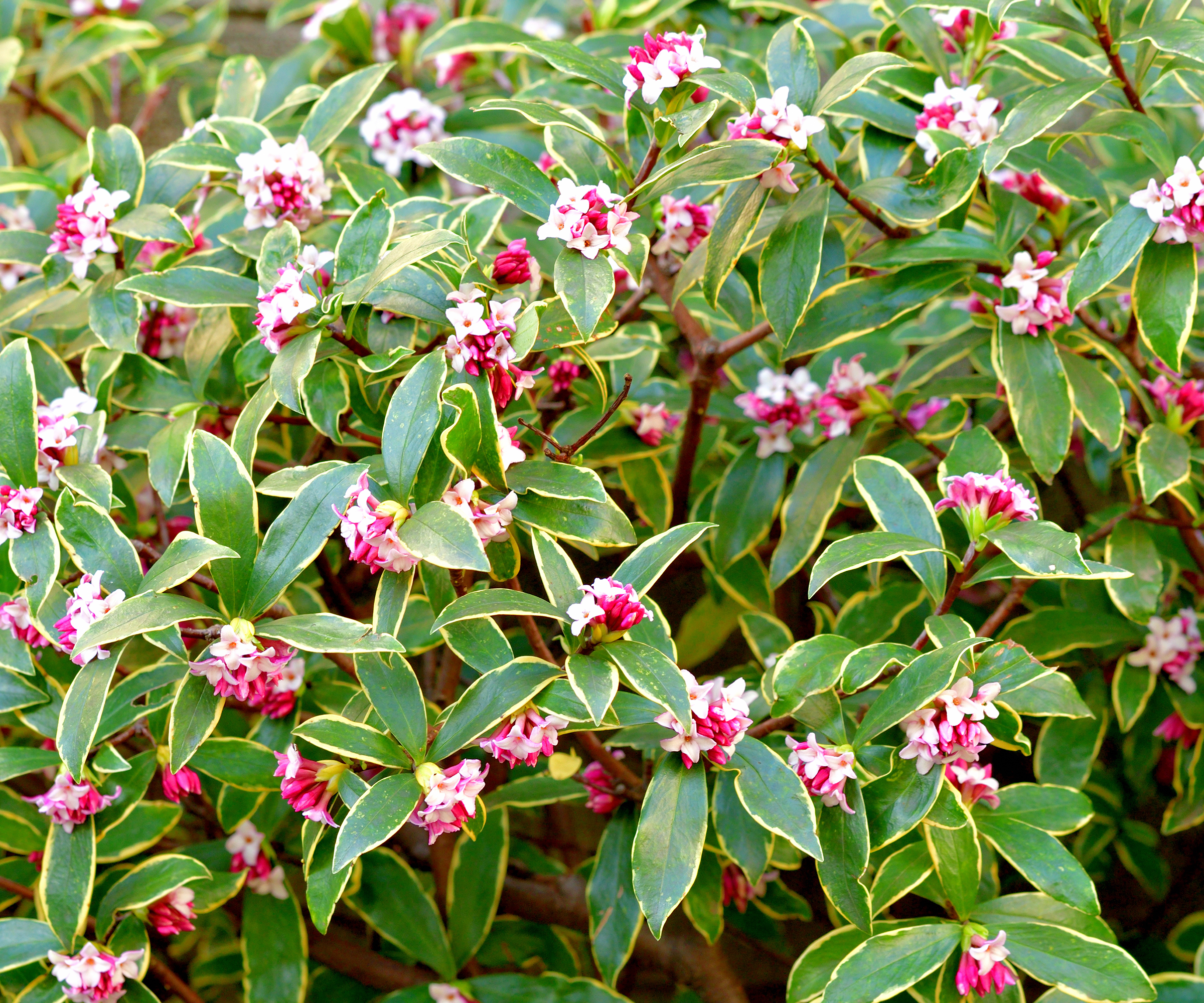
Winter daphne (Daphne odora) is an evergreen shrub that provides a year-round hedge in zones 7 through 9. It produces flowers in late winter in its warmest range. In zone 7, it blooms in early spring.
The flowers of winter daphne are reddish-purple and richly fragrant; leaves are glossy and dark green.
Grow daphne in soil that drains well and stays moist. It prefers rich soil, so add compost, if necessary, before planting. Use mulch to keep the soil moist and to protect roots in winter. Partial shade is best for daphne, which can scorch in full sun.
Daphne does not like to be moved, so find the best spot for it and avoid transplanting later.
7. Mountain Laurel
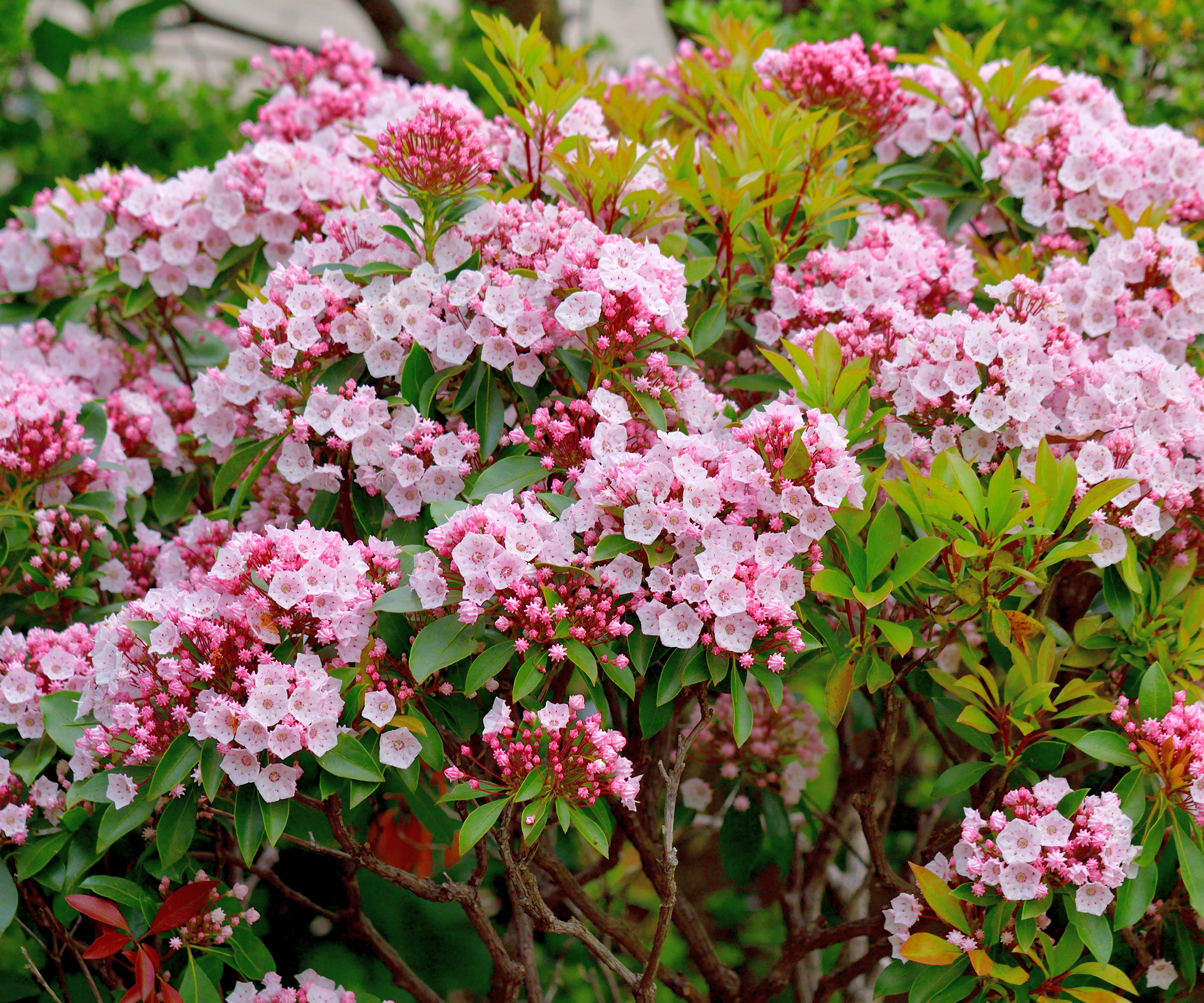
For an evergreen shrub that is fragrant and grows in colder climates, try mountain laurel (Kalmia Latifolia). It is hardy in zones 4 through 9 and produces cup-shaped white flowers with pink or purple markings. Many people describe the smell of the flowers as similar to grape soda.
The shrub is native to eastern North America, so it is an ideal choice for many native gardens.
A mountain laurel hedge grows best in partial shade and moist, rich, acidic soil. Plants grow as tall as 15 feet (4.6 m) and can be trimmed into a natural or neat hedge.
There are many plants to choose from that are well suited to creating a natural hedge. Why not select a plant that will provide privacy as well as fragrant flowers? These and many other flowering shrubs make great hedges and smell wonderful.

Mary Ellen Ellis has been gardening for over 20 years. With degrees in Chemistry and Biology, Mary Ellen's specialties are flowers, native plants, and herbs.
- Amy DraissDigital Community Manager